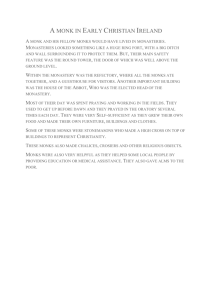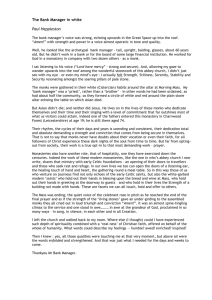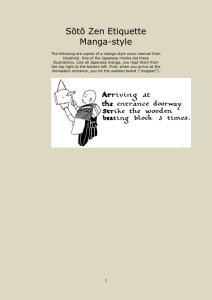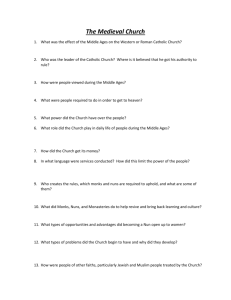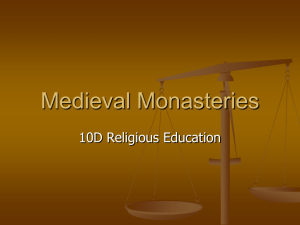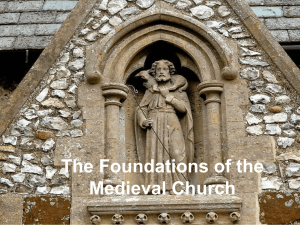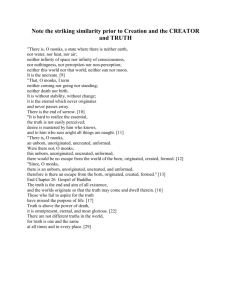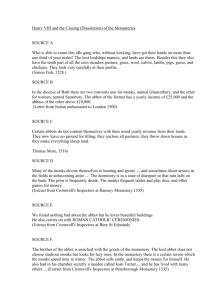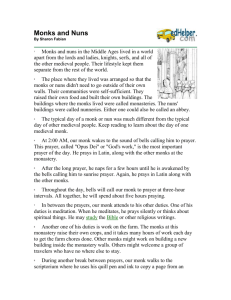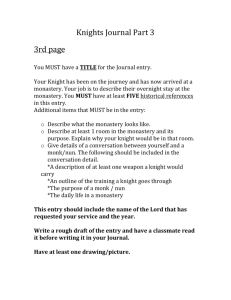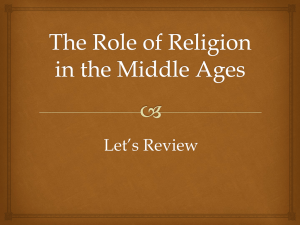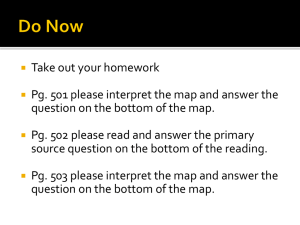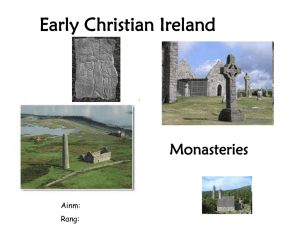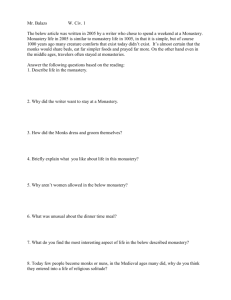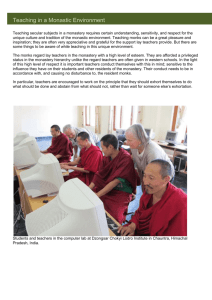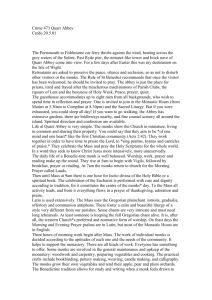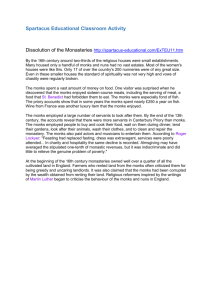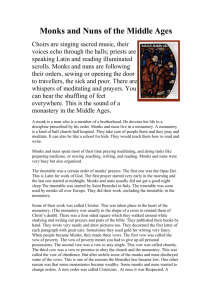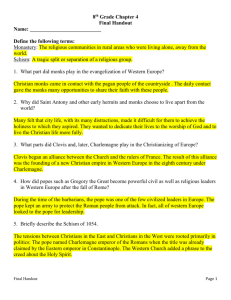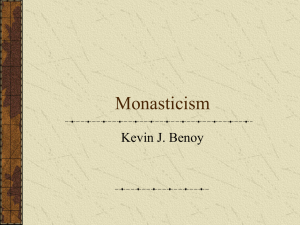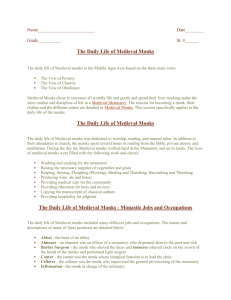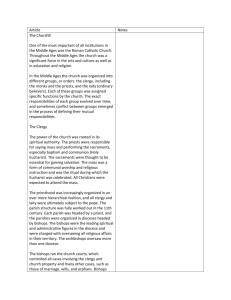A monk in Early Christian Ireland
advertisement
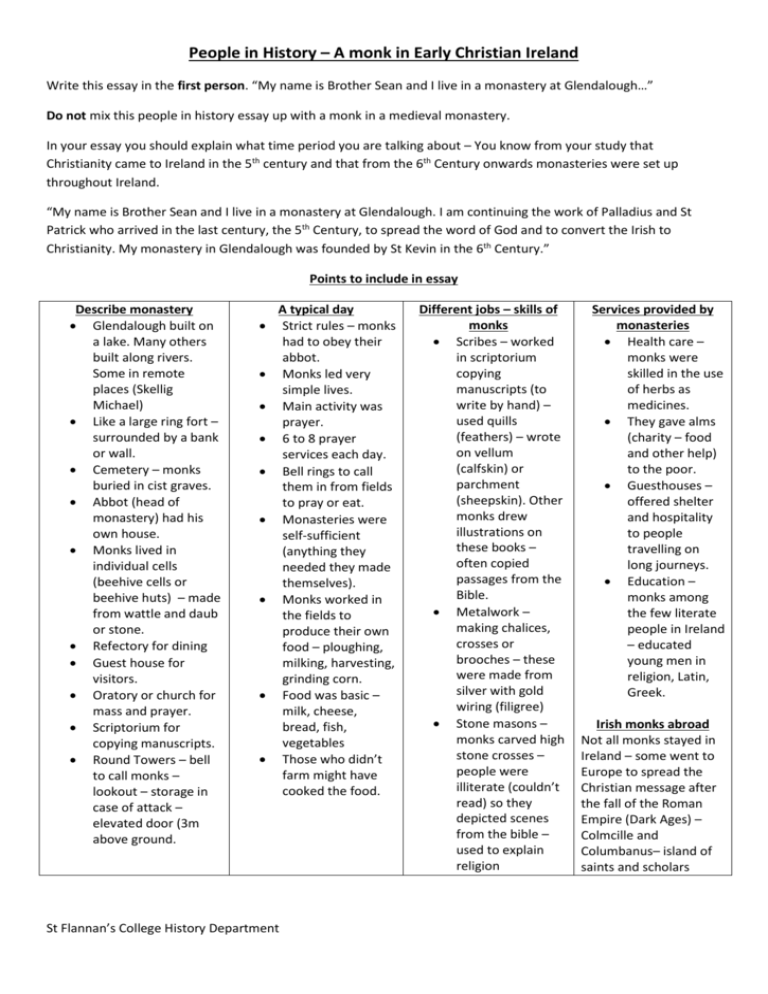
People in History – A monk in Early Christian Ireland Write this essay in the first person. “My name is Brother Sean and I live in a monastery at Glendalough…” Do not mix this people in history essay up with a monk in a medieval monastery. In your essay you should explain what time period you are talking about – You know from your study that Christianity came to Ireland in the 5th century and that from the 6th Century onwards monasteries were set up throughout Ireland. “My name is Brother Sean and I live in a monastery at Glendalough. I am continuing the work of Palladius and St Patrick who arrived in the last century, the 5th Century, to spread the word of God and to convert the Irish to Christianity. My monastery in Glendalough was founded by St Kevin in the 6th Century.” Points to include in essay Describe monastery Glendalough built on a lake. Many others built along rivers. Some in remote places (Skellig Michael) Like a large ring fort – surrounded by a bank or wall. Cemetery – monks buried in cist graves. Abbot (head of monastery) had his own house. Monks lived in individual cells (beehive cells or beehive huts) – made from wattle and daub or stone. Refectory for dining Guest house for visitors. Oratory or church for mass and prayer. Scriptorium for copying manuscripts. Round Towers – bell to call monks – lookout – storage in case of attack – elevated door (3m above ground. A typical day Strict rules – monks had to obey their abbot. Monks led very simple lives. Main activity was prayer. 6 to 8 prayer services each day. Bell rings to call them in from fields to pray or eat. Monasteries were self-sufficient (anything they needed they made themselves). Monks worked in the fields to produce their own food – ploughing, milking, harvesting, grinding corn. Food was basic – milk, cheese, bread, fish, vegetables Those who didn’t farm might have cooked the food. St Flannan’s College History Department Different jobs – skills of monks Scribes – worked in scriptorium copying manuscripts (to write by hand) – used quills (feathers) – wrote on vellum (calfskin) or parchment (sheepskin). Other monks drew illustrations on these books – often copied passages from the Bible. Metalwork – making chalices, crosses or brooches – these were made from silver with gold wiring (filigree) Stone masons – monks carved high stone crosses – people were illiterate (couldn’t read) so they depicted scenes from the bible – used to explain religion Services provided by monasteries Health care – monks were skilled in the use of herbs as medicines. They gave alms (charity – food and other help) to the poor. Guesthouses – offered shelter and hospitality to people travelling on long journeys. Education – monks among the few literate people in Ireland – educated young men in religion, Latin, Greek. Irish monks abroad Not all monks stayed in Ireland – some went to Europe to spread the Christian message after the fall of the Roman Empire (Dark Ages) – Colmcille and Columbanus– island of saints and scholars
